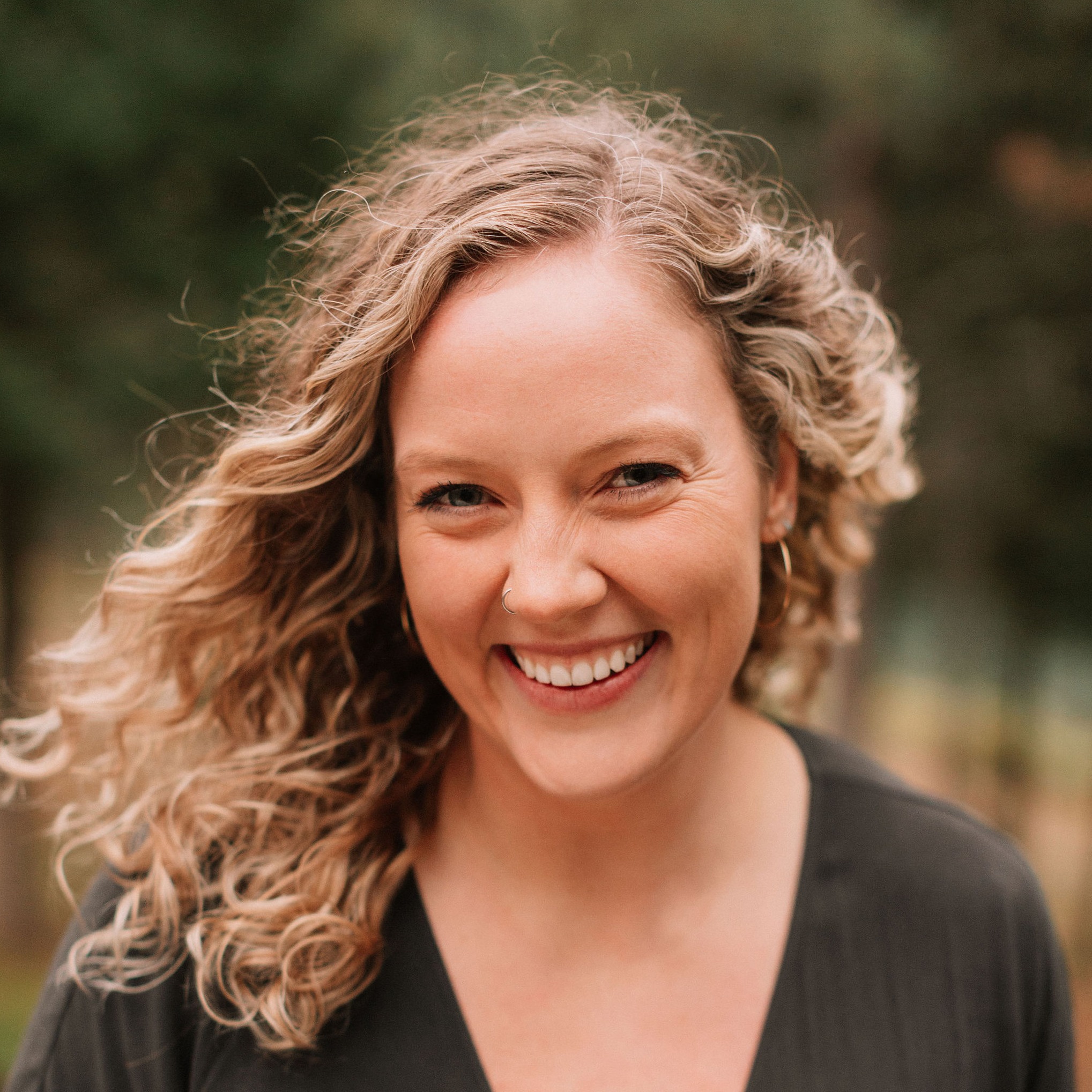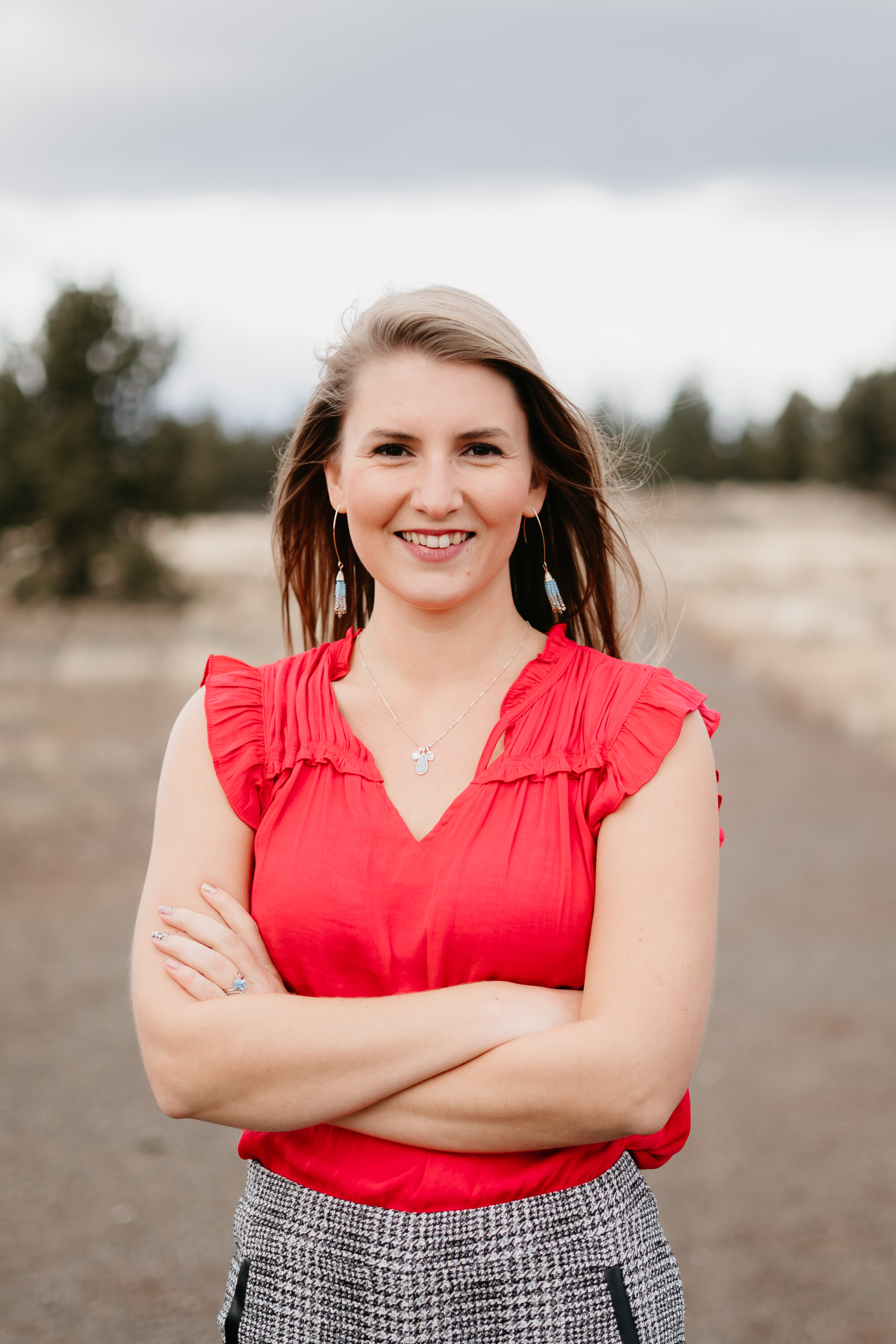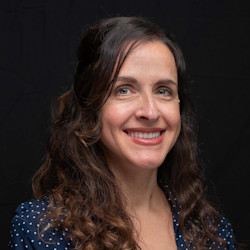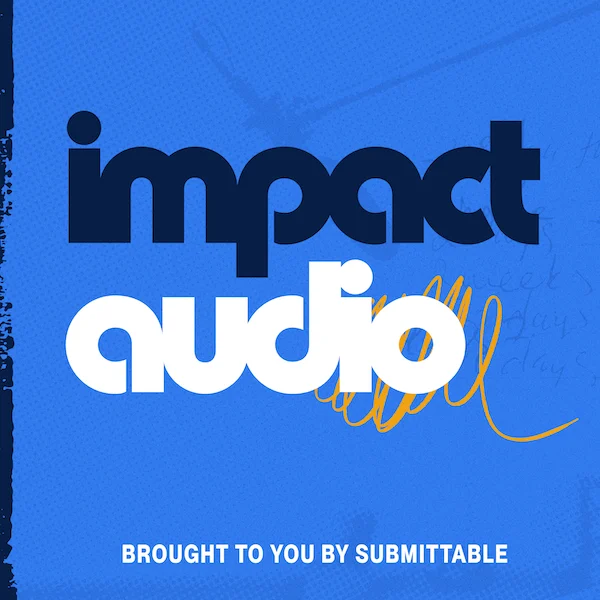Dispatch: EFG 2024 and a peek at the future of CSR
This episode is a quick conversation between Sam and Madi on their takeaways from EFG 2024, held in Minneapolis last month.
In this episode we cover:
- The increasing politicization of DEI and CSR programs
- Areas where ideas like trust-based philanthropy are making progress
- Ways AI both did and didn’t fit in the conversation

Madi is Submittable's Sr. Product Marketer focused on CSR and the Corporate audience. She helped run social impact programs during her time at Lyft and Snap! Mobile, and is now working to create the technology that those companies can use to accelerate their community impact and employee engagement work.
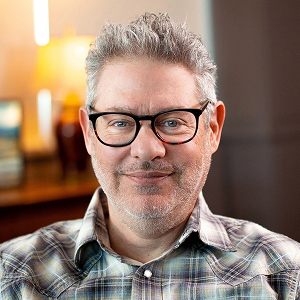
Sam Caplan is the Vice President of Social Impact at Submittable, a platform that foundations, governments, nonprofits, and other changemakers use to launch, manage, and measure impactful granting and CSR programs. Inspired by the amazing work performed by practitioners of all stripes, Sam strives to help them achieve their missions through better, more effective software.
Sam formerly served as founder of New Spark Strategy, Chief Information Officer at the Walton Family Foundation, and head of technology at the Walmart Foundation. He consults, advises, and writes on social impact technology, strategy, and innovation.
Connect with or follow Sam on Linkedin, listen to his podcast Impact Audio, and subscribe to his bi-weekly newsletter The Review.
Episode Notes:
- Subscribe to Sam’s newsletter, The Review, for more insights like this
- Connect with Sam on LinkedIn
- Watch John Brothers’ Impact Studio video
- Watch David Hessekiel’s Impact Studio video
- Watch the Impact Studio panel discussion with both John and David
- Read about our Submittable’s experiments in volunteering and participatory practices
- Read about Sam’s experiments into trust-based philanthropy
- Learn more about Engage for Good
- Become a member of EFG’s community of social impact professionals
- Check out this year’s HALO award recipients
Transcript
Welcome to Impact Audio. I'm Sam Kaplan, Vice President of Social Impact at Submittable. Today's episode is a dispatch from Engage for Good twenty twenty four, where I'll share my biggest takeaways from that event. This year's EFG conference was held in Minneapolis, and I had the opportunity to attend alongside my friend and colleague, Madison Silver, who's a product marketing manager here at Submittable. We both sat down after the conference to reflect on what we learned about the future of CSR.
So without further ado, here's our conversation.
Well, Sam, I was glad that I was able to be in person with you last week in Minneapolis for this event. Was really nice getting together and getting to talk and connect. So if you want to talk about what EFG is and kind of tell me about the event and why you were excited to attend this year, that'd be awesome.
So Engage4Good is a company and its goal is to empower corporations and nonprofit professionals to create mutually beneficial social impact partnerships. And really, the emphasis there is on the partnerships. I'll be talking more about this sort of concept of corporations and nonprofits, like developing these collaborations more as we have our conversation, Maddy.
You know, EFG, they have this annual conference, and a big part of the conference is something they call the Halo Award. But they also do other things outside of this annual conference, like they put together tons of educational webinars. Our friend Ali does an amazing podcast that features experts in the CSR space. They put together a monthly newsletter, a bunch of educational guides, they have a job board, you know, and a whole membership program that's associated with Engage for Good.
So what I would also say about this was this was the first year since their new CEO took over. His name is Manir Panjwani. And for like the last twenty plus years, the organization was led by David Hezekiel. So this was Manir's first year, and he definitely like put his stamp on things this year.
I thought that the overall tenor of the conference was really kind of focused on, like, movements and activism and social justice. And there were a lot of sessions that were, like, on causes and activities and partnerships all related to these social justice themes like activism and disability and DEI and allyship and LGBTQ plus and transforming justice. So it definitely had like kind of a more urgent, like really kind of like progressive topical feel to it this year.
Thanks for sharing that, Sam. So what speakers or sessions stood out to you the most?
Well, you know, I am going to say like, my favorite session of the entire conference was our good friend John Brothers. He is the president of the T. Rowe Price Foundation.
He partnered with Jennifer Bejos from the Fidelity philanthropic consulting organization, and they talked about trust based philanthropy. So John's conversation was, you know, had a lot of the same themes and and points that he made, like when he was one of our guests on Impact Studio. And I loved it because typically when we think about like corporate philanthropy, it's often really kind of transactional, like there's a grant, and this sort of like arduous process that nonprofits have to go through, they have to jump through a bunch of hoops, they have to create data and metrics that corporations are interested in seeing in order to get that funding.
So John and Jennifer's session really focused on like, the trust based angle of all of this and just provided a ton of information on how corporations can step up and be even more impactful and effective by using this trust based practice. So that was definitely one of the sessions that I liked a lot. Another was led by Kelly Robinson. She was on the main stage.
She is the president of the Human Rights Campaign Foundation. Her session was titled Closing the Ally Gap. So she spoke a lot about LGBTQ plus equality and like awareness among corporations. Her organization produces a survey and a sort of corresponding metric called the Corporate Equality Index.
She talked about, there's fifteen hundred corporations around the world that participate in this survey. It was just really interesting to like, hear her talk about how corporations can step up and do a little bit better job in terms of being LGBTQ aware. And then lastly, there was a really interesting session on DEI. And I thought that it was interesting, like this is had been a really popular topic, obviously, for a bunch of years now.
But the two leaders of the session talked about how like DEI has become so politicized over the last couple of years. They talked about like how corporations are trying to like navigate their DEI work in relation, you know, to this prospect that they can also become targets of boycott or negative campaigns out there. One of the speakers sort of made this great point. They asked, like, should corporations like, what's the greater risk?
Is it in stopping your DEI efforts or, in in continuing them? So it was just super interesting. And I really appreciated that there was this acknowledgment that, like, politics are beginning to play a role in the role of CSR.
To add to that, one of the sessions I attended was building long term partnerships through successful employee engagement programs. And so I think that a lot of the sessions I felt came together of two different organizations. So this one was specifically Rise Against Hunger and the Kraft Heinz Company. And I felt that that was a theme throughout all the sessions was two different organizations coming together to talk about how they work together to build their programs and how that was a future of their program as well was to continue those strategies and partnerships.
Yeah, I was in that that session too. And it was really good. And I think for a lot of years and in CSR, like we've talked about all of the individual components that go into corporate social responsibility. So that could be volunteering, or it could be, you know, employee giving, or it could be grants, or it could even be like more recent initiatives like DEI and equity. But it's so interesting to see that nonprofit organizations and corporations are really coming together in this very collaborative partnership with common goals and common objectives, and they're really sort of treating one another as equals in terms of figuring out how to move the needle on those issues. So again, like, I really think that is going to be much more the future of CSR, than this sort of continued emphasis on like individual programs that comprise the big picture.
Yeah, I think that's something that we've seen at Submittable as well is when we're building out our internal CSR programs, we're trying to do it across the board. And so it's no longer just a volunteer event with a nonprofit. We are making a volunteer event and a giving campaign with that same nonprofit. So whether you're donating your time or your money, it's going towards one larger goal instead of having kind of these dispersed events that happen and just pop up that are independent of each other.
Yeah, right on. Maddie, what was your favorite session at the conference this year?
I attended the strategies and diverse approaches for creating best in class employee engagement programs. And what I really loved about this one was that they brought in AI, and they made it fun.
So one thing that they did was we used ChatGBT, and they talked about how the program manager for their employee engagement programs was interested in Marvel. So they use ChatGPT to write an email that talked about superpowers and superheroes and made it just very fun and engaging. And I think that that's something that is cool about chat GBT. It doesn't need to always be very professional or straightforward. You can use it to build unique ideas and unique emails and make it fun. And I was sitting next to a woman Kelsey from the American Cancer Society.
And she, you could tell at first she was a little bit nervous about AI. One of the things that we did was building out a timeline for a volunteer event. And that's a big piece of her job. And so when it was first said, she hesitated a little bit. And then after we worked through that, she was able to see that what chat GBT did was take away the manual tasks that don't actually need thinking. And she could then go back to her job and actually think about the impact that it was having. So chat said GBT said, you should run an event from one to four.
That's not hard. And that's not important to her like day to day life, she could then go back and think about what nonprofit to work with, how we are going to actually show impact after the event. And so it was really fun to see kind of that transition just in a couple minutes, not being afraid of AI resources.
That's really cool. And I'm super excited that like the topic of AI came up organically in a session. It was really interesting, like I go to so many of these conferences. And AI has been such a like hardcore central theme of like every conference that I've been to, it was kind of notably absent from engage for good. Like I didn't see any sessions kind of focused on like how to use chat GPT to further your social impact work like, you know, and at all the other conferences I'm going to, that's like half the session. It was really interesting that, you know, I'm super happy it came up organically, but kind of interesting that it wasn't a theme in the way that it has been, you know, with so many other conferences this year.
So Sam, do you have any final thoughts on the EFG conference this year?
I would be sort of remiss if I didn't like contrast this year's event with a report that just came out from Axios Harris Poll one hundred. And so this is a report that really sort of measures, like corporate reputations. So the data from that poll shows that traditionally, conservative leaning brands saw really sizable gains in corporate reputation, and trust like and that was especially coming from like voters who are independent and democrats. And I thought that that was just a really, really kind of fascinating data point that like, you know, corporations and their shoppers are beginning to lean more like centrist.
And, you know, in contrast to the tenor of engage for good, which was really focused on like more progressive causes and social justice, like, I think it's just going to be really fascinating to see how corporations react to this growing movement of so many US citizens and by extension customers of businesses like leaning a little bit more conservative in their, in their politics and in their perspective. So I think it's going to be really interesting to see like over over the next couple of years, like, you know, is there more of a contrast in sort of this like, idea of like social justice that was a central theme of Engage for Good this year, you know, or or not.
Thanks for tuning in. If you'd like to sign up for my newsletter, head to Submittable dot com slash newsletter. I send short notes twice a month on the latest developments in social impact. I also encourage you to connect with me on LinkedIn, where I often post live updates from the conferences that I attend.
Until next time.
You might also like

